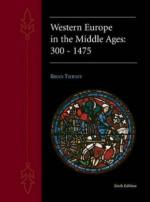|
This section contains 2,182 words (approx. 8 pages at 300 words per page) |

|
Natural Philosophy. The body of knowledge now called science was known to the Middle Ages as natural philosophy. It encompassed all the ways that one could reason about the world and come to a better understanding of it. From the twelfth century onward the most important medieval scientists tended to be associated with royal households or universities (which were initially offshoots from cathedrals in cities such as Paris, Oxford, and Padua). Before that time monks studied nature in their monasteries. In either case, these scientists divided their time between scientific studies and either teaching or church duties.
Ancient Roots. Roman science was never as developed as Roman technology, and the Romans generally depended on and preserved earlier Greek learning in astronomy, mathematics, medicine, and philosophy. When the administrative structures of Rome crumbled in the fourth and fifth centuries, Europe was left largely...
|
This section contains 2,182 words (approx. 8 pages at 300 words per page) |

|




